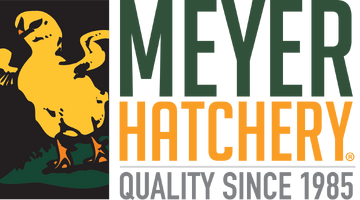Avian Influenza and Biosecurity
Last Updated: September 9, 2025
What is Avian Influenza (AI) and Why Does it Matter?
Avian Influenza, commonly called AI or the bird flu, is an infectious disease in birds caused by type A strains of the influenza virus.
There are two main types of AI. Low Pathogenic (LPAI) is usually mild, often showing no symptoms or only minor illness. High Pathogenic (HPAI) is highly contagious, with severe symptoms and high mortality rates.
The current HPAI outbreak in the U.S. began in late 2021 and remains ongoing in 2025, with widespread detections in wild birds, backyard flocks, and commercial operations. To date, more than 166 million birds across all 50 states and Puerto Rico have been affected. After slowing somewhat in 2024, cases rose again in early 2025, with over 110 new infections in 27 states within a 30-day span.
Complicating matters, H5N1 has crossed into mammals, including dairy herds, with detections even found in the air and wastewater of milking parlors. Human cases, still rare, have been recorded in individuals with direct exposure to infected birds or livestock. While there is no evidence of sustained human-to-human transmission, the situation underscores the need for strict biosecurity.
Because of its ability to spread quickly and cause high losses, poultry owners must take HPAI very seriously and practice strong biosecurity at all times.
How Can I Protect My Flock?
Biosecurity is your number one line of defense. Move your flock indoors when possible. Bird-proof outdoor runs with netting or tarps to prevent contact with wild birds and droppings. Use coop-only shoes and a sanitizing footbath before entry. Wash your hands before and after caring for poultry. Sanitize equipment between uses and flocks. Remove bird feeders and baths, or place them far from your flock. Only purchase birds or hatching eggs from reputable NPIP hatcheries. Do not borrow, lend, or rent equipment that could be contaminated.
Can Meyer Hatchery Still Ship Day-Old Poultry and Hatching Eggs During an AI Outbreak?
Yes! Meyer Hatchery is a proud member of the National Poultry Improvement Plan (NPIP). Our NPIP number is 31-184 and our status is U.S. Pullorum-Typhoid Clean with added classifications: H5/H7 AI Clean and Salmonella Monitored.
It’s important to note that AI is not passed from a mother hen to chicks in eggs. For the latest updates on state-specific precautionary requirements, see shipping page.
Symptoms of HPAI
If you suspect HPAI, look for sudden death, purple combs, wattles, legs, or feet, a drop in appetite, energy, or egg production, respiratory signs such as coughing, sneezing, or nasal discharge, diarrhea, and soft-shelled or misshapen eggs.
There is no cure or vaccine for Avian Influenza.
Staying Informed
For current AI detections and updates, visit the APHIS (USDA) website or check with your state Department of Agriculture for local information.
How Does Meyer Hatchery Protect Its Flocks?
We maintain strict biosecurity practices across our barns, hatchery, and retail store. Our barns are closed, and each barn has footbaths and barn-specific boots, limited access to essential personnel only, and vehicle sanitization upon entry. Additionally, we practice daily sanitization of eggs, hatching rooms, surfaces, and equipment. For customer safety, no outside animals are permitted on the property.
We also work closely with our state veterinarian to ensure the best available disease-prevention measures are in place.
What to Do if You Suspect AI in Your Flock
If you believe your birds may have AI, contact your local cooperative extension office, veterinarian, or state diagnostic lab. You can also call the USDA toll-free hotline at 1-866-536-7593 for immediate assistance.
